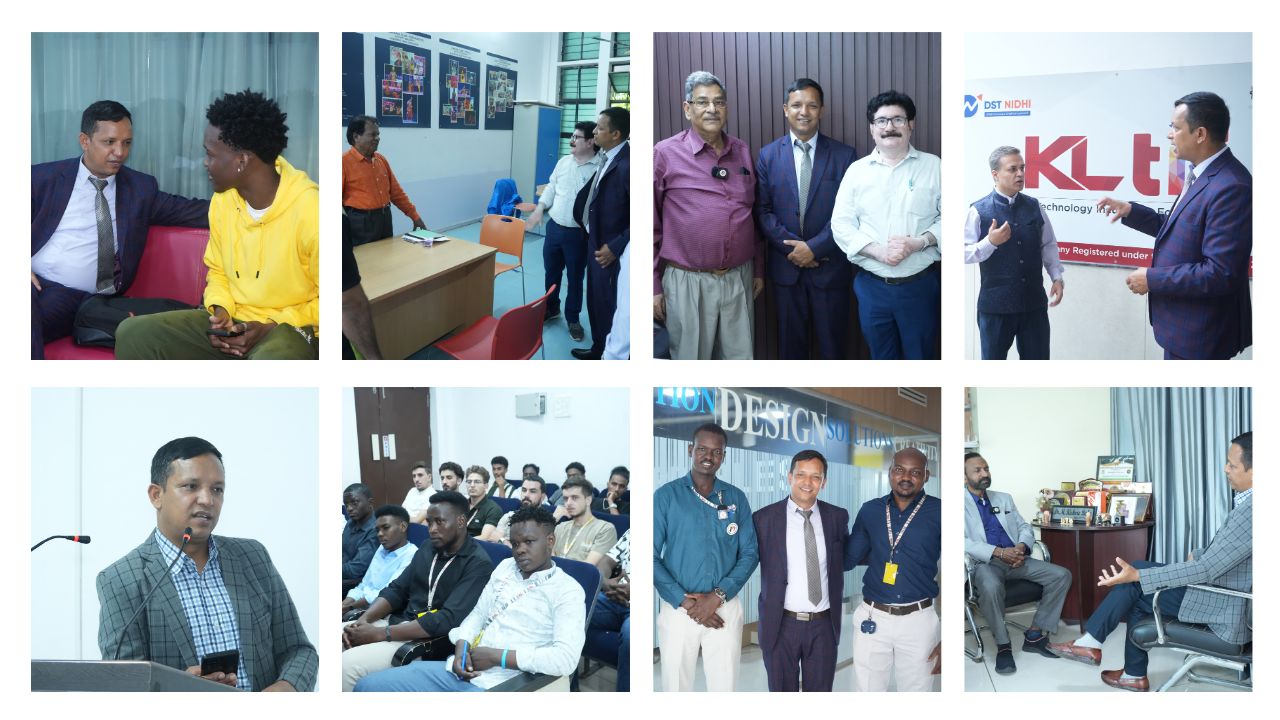
KL University: Educational Destination for Nepalese Students
As part of the Destination India television program, Sunil Acharya, Director of Jupiter Media Pvt. Ltd., visited KL University in Andhra Pradesh—a respected Indian university.
The goal was simple: give Nepalese students a clear picture of what studying in India is like—academic options, practical research, campus life, and student support. The visit was organized with Informatics Consultancy, which handled coordination and logistics so the schedule ran smoothly and the coverage stayed useful.

KL University’s Reputation and Rankings
KL University has earned steady recognition among India’s leading universities.
In the National Institutional Ranking Framework (NIRF) 2025, it is ranked 26th nationwide. Globally, it is placed in the 801–1000 band of the Times Higher Education (THE) World University Rankings 2025 and the 1351–1400 band of the QS Sustainability Rankings 2025.
These results reflect a consistent focus on teaching quality, research, and sustainability. For Nepalese students considering studies abroad, such recognition signals that their degree will be understood and respected.
Campus Visit and Observations
During the visit, Sunil Acharya toured classrooms, labs, innovation hubs, and residential areas. He noted how modern facilities align with a learning culture that encourages curiosity and practical problem-solving.
Sharing his reflections, he said,
“KL University truly represents what a modern university should be. The academic atmosphere, the research culture, and the student facilities are all at an exceptional standard.”
Through his coverage, Nepalese audiences saw how universities like KL use technology, creative projects, and active student engagement to strengthen learning—and what to expect when pursuing higher studies in India.
Leadership Perspectives
In a conversation with Dr. V. Shanmukhkumar Jagarlapudi, Professor at KL University, the academic direction was clear. He said,
“Our mission is to educate through creativity, research, and social responsibility. We want students not just to learn, but to create positive change.”
Dr. M. Kishore Babu, Dean of International Relations, added that KL University continues to welcome students from countries including Nepal. He highlighted dedicated academic support, mentorship, and an inclusive campus culture to help international students settle in and succeed—academically and socially.
Student Experiences
For Nepalese and other international students, KL University has been both challenging and rewarding.
Suman Kumar Sah, a Computer Science & Engineering student from Nepal, shared,
“The learning environment here motivates you to grow. The labs are well-equipped, the teachers are supportive, and the overall atmosphere pushes you to keep improving.”
Ashika Mongar from Bhutan, pursuing a B. Pharmacy degree, offered a similar view:
“At KL University, education is more than classroom learning—it’s about developing confidence, discipline, and a sense of purpose.”
Their experiences show a common thread: students find space to learn deeply, test their skills, and prepare for meaningful futures.
Jupiter Media’s Role
Jupiter Media Pvt. Ltd. has long worked to connect Nepalese students with trustworthy universities abroad. Through programs like Destination India, it provides on-the-ground, transparent reporting so students and parents can make decisions based on clear information.
The partnership with Informatics Consultancy on this visit helped close the information gap for Nepalese learners. Together, they presented practical details about programs, campus life, and international opportunities—grounded in direct observation rather than promotion.
Conclusion
KL University stands out for strong academics, modern facilities, and an inclusive student community. For Nepalese students planning to study abroad, it offers more than a degree—it offers an environment that supports both professional growth and personal development.
The joint effort by Jupiter Media and Informatics Consultancy made reliable, easy-to-understand information accessible to Nepalese students. Initiatives like this help young learners make informed choices—and, over time, contribute positively to their communities back home.


